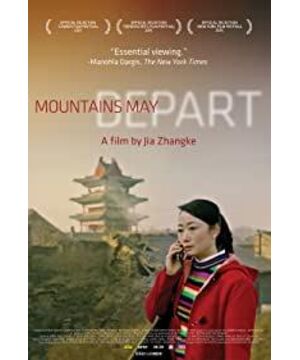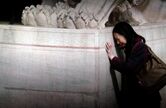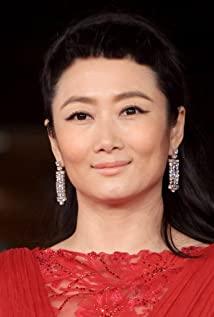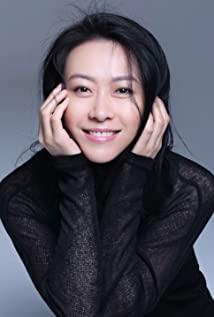Jia Zhangke's new work and Hou Hsiao-hsien's "Nie Yinniang" are Chinese-language films that entered the main competition unit of the Cannes Film Festival this year.
At the same time, Jia Zhangke also won the Cannes Lifetime Achievement Award. The "Golden Carriage Award"
has once again made Jia Zhangke the focus of attention and debate among fans and the media.
Some say that Jia Zhangke is becoming more and more master-like, and some doubt that Jia Zhangke sells national wonders.
Before watching the film, I was very much looking forward to and curious as to how the film was.
After reading it, the amount of information is indeed slightly larger, and there are many feelings that I want to share with you.
Although it may be a little spoiler to talk too much, I think Chief Jia's film will still look different from what you think even if it is spoiled. It doesn't matter. (And I promise not to spoil who is the most powerful sex scene in this film...)
Before the screening, Jia Zhangke said that "Old Man in Mountains and Rivers" is the 45-year-old's perception of his previous life.
The plot of the movie runs from 1999 to 2025. It tells the various feelings between various characters and their different life experiences. It is a light and sad story in the context of the rapidly developing China.
After watching the film, first of all, the most eye-catching thing about "The Old Man of Mountains and Rivers" is the processing of the film on the frame, using 1.37:1 (4:3) / 1.85:1 (16:9) / 2.35:1 (wide screen) respectively. Represent and differentiate the 1999/2014/2025 pictures.
The "Grand Budapest Hotel", which was so popular last year, used this coquettish and interesting approach.
I think Jia Zhangke probably used this method to make the three scenes with little sense of the times more clearly distinguished, to create a sense of form, and to make up for and ease the pressure on the film’s imagination when creating future episodes.
Even the title of "Old Man of Mountains and Rivers" was put on the film for about 50 minutes, and it appeared after the scene was completely finished in 1999, which had a similar effect.
When it comes to the title "Mountains May Depart", the English title is "mountains may depart" (mountains can be moved) I don't know if it means "mountains can be moved, love is forever" or "mountains can be moved, people are no longer"?
The duration of the scenes of the three eras in the whole film is almost average, but the feeling is not balanced.
The most concentrated slot seems to appear in the third paragraph about Australia 2025.
I have seen an interesting complaint: "I have never seen a rich second generation like Zhang Daole (dollar) who has backbone, feelings, and goes to restaurants to serve dishes. In reality, the Chinese rich second generation have no respect for their parents. Wealth is the most tame group of people, but when Zhang Daole is here, he actually wants to talk about freedom with his father. If Wang Sicong sees this, he will probably find it funny. "
But I can still adapt to this, after all, the little dollar is here Having lived in Australia for 10 years, it is understandable that the foreign environment has shaped this rich second generation to be different from those around us.
But in describing the future in the whole paragraph, I deeply feel Jia Zhangke's powerlessness, not only in terms of creativity but also in the emotional expression of the characters after they grow up.
The little dollar born in Shanxi was able to chat with his stepmother in Shanghai dialect when he was 7 years old,
but when he was 18 years old, he completely forgot all Shanxi dialect, Shanghai dialect and Mandarin, and could no longer live with his father. exchange. . .
This design-filled plot arrangement may have given a lot of meaning. But the biggest feeling I experienced was discomfort. The sense of reality is seriously offset and dislocated.
But for some viewers, this is just the beginning. . .
In the entire future paragraph where father and son cannot communicate, there is almost no sense of conflict and distance in body and facial expressions when they are silent, and some are double the dialogue of the previous two paragraphs, or English dialogue.
It seems that just using the lines can bring the emotion to a climax.
The narration of the entire paragraph is in Zhang Aijia, Zhang Yi and Dong Zijian's facial close-up, supported by their superb performances, and in the reading of large paragraphs of lines and dialogues, advancing. . . . . .
If your English is better, just close your eyes and listen.
The whole film is too intensive, the sense of design is too strong, the amount of information is too large, and there is not enough space for thinking.
Jia Zhangke is good at collage, pure collage and paste.
Use collage to express contrast and collage to express change. He repeatedly uses this method in his films.
It is no exception when it comes to "Old Man in the Mountains and Rivers", and compared to the previous films, this is Jia Zhangke's most dramatic and most complete and coherent storytelling film.
Jia Zhangke used too many techniques and language in "Old Man in Mountains and Rivers", and used too much force. There is even a slight illusion of opportunistic speculation.
But no matter what, Jia Zhangke is still the most authentic and honest director among domestic directors.
If more directors like Jia Zhangke make such films, there will be more possibilities for Chinese films.
Only then can Chinese films be more than domestically-produced commercial bad films that cannot even entertain to the death.
So when the movie is released, I still hope that "The Old Man of the Mountains and Rivers" will have a good result, which proves that there are still various possibilities for audiences to support Chinese movies.
I haven't heard of the news that "The Old Man of the Mountains and Rivers" has been set, but Hou Hsiao-hsien's "Nie Yinniang" has been set for August 27th. On the same day, there is also "The Burning Sun" directed by Cao Baoping, both of which are the conscience of Chinese-language films. make.
Look forward to and support, and cheer for Chinese movies.
Wechat: DR's words on the spot
View more about Mountains May Depart reviews











